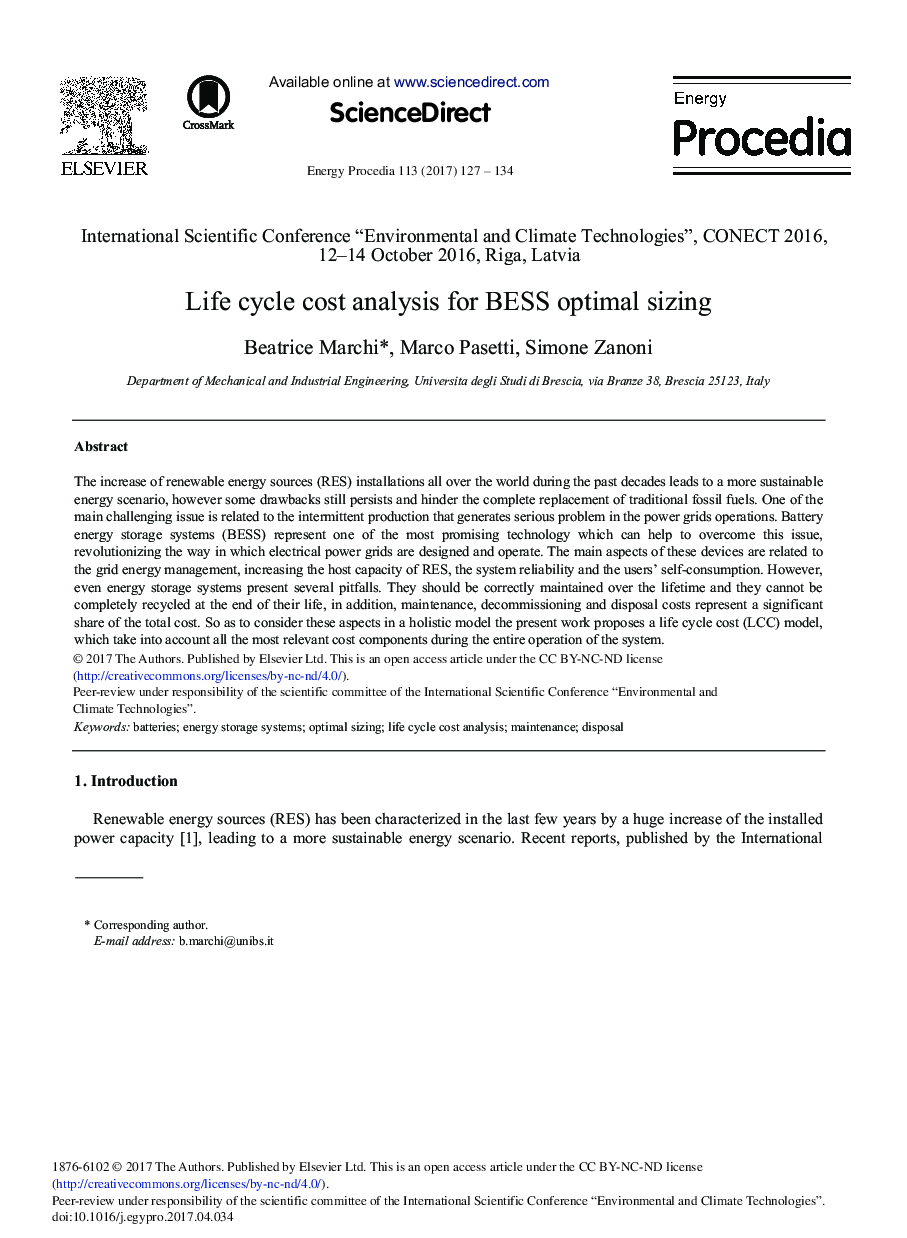| Article ID | Journal | Published Year | Pages | File Type |
|---|---|---|---|---|
| 5445638 | Energy Procedia | 2017 | 8 Pages |
Abstract
The increase of renewable energy sources (RES) installations all over the world during the past decades leads to a more sustainable energy scenario, however some drawbacks still persists and hinder the complete replacement of traditional fossil fuels. One of the main challenging issue is related to the intermittent production that generates serious problem in the power grids operations. Battery energy storage systems (BESS) represent one of the most promising technology which can help to overcome this issue, revolutionizing the way in which electrical power grids are designed and operate. The main aspects of these devices are related to the grid energy management, increasing the host capacity of RES, the system reliability and the users' self-consumption. However, even energy storage systems present several pitfalls. They should be correctly maintained over the lifetime and they cannot be completely recycled at the end of their life, in addition, maintenance, decommissioning and disposal costs represent a significant share of the total cost. So as to consider these aspects in a holistic model the present work proposes a life cycle cost (LCC) model, which take into account all the most relevant cost components during the entire operation of the system.
Related Topics
Physical Sciences and Engineering
Energy
Energy (General)
Authors
Beatrice Marchi, Marco Pasetti, Simone Zanoni,
